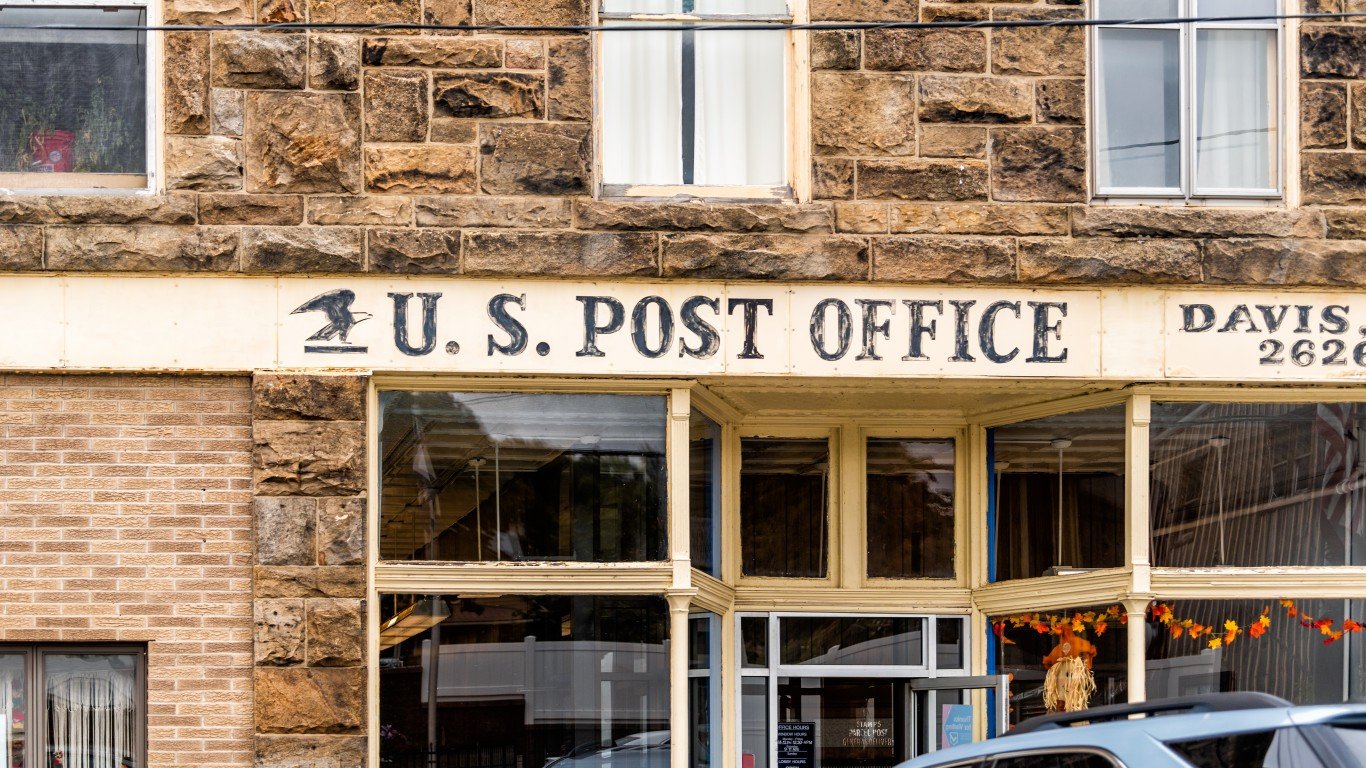

In an earlier report on publicly traded construction companies that could benefit from the infrastructure plans laid out by Joe Biden, the all-but anointed Democratic candidate for U.S. president, we focused on engineering, procurement and construction firms. In this installment, we want to look at a number of companies that provide the materials that construction companies use to build roads, bridges and buildings.
In late July, Biden released an updated plan for infrastructure and clean energy projects that committed to spending $2 trillion over four years to put the United States “on an irreversible course to meet the ambitious climate progress that science demands.” The projects included in the Biden plan do not have price tags attached, but meaningful investments in infrastructure, the auto industry, mass transit, electric utilities, housing and buildings, agriculture and conservation, research and development, and environmental justice won’t come cheap.
In 2017, the American Society of Civil Engineers (ASCE) released its quadrennial infrastructure “report card” that established the country’s needed infrastructure investment at $4.6 trillion over the 10-year period between 2016 and 2025. The report card included $2 trillion in upgrades to surface transportation, more than $900 billion in the U.S. power generation and transmission system, and $870 billion in upgrading the nation’s schools. The gap between available funding and total funding needed was nearly $2.1 trillion.
A fair share of the work will go to smaller, privately held companies that supply materials and skilled labor to make all these projects work. But larger publicly traded companies will supply a lot of materials and a lot of project management expertise.
Of the six largest materials firms, two are based in Europe and five trade on major U.S. exchanges. The two European firms are also the largest.
Looking at potential outcomes of a Biden presidency by themselves ignores many variables that could improve or weigh down the business effects on a sector. Tax changes, for example, could lower after-tax net income, regulation costs and industry practice changes can increase operating expenses, and changes to employment laws also could come into play. While it may be easy to see an opportunity for some companies, it’s hard to predict what the eventual result will be.
CRH
Though headquartered in Dublin, Ireland, CRH PLC (NYSE: CRH) has operations in both Europe and the Americas. The company’s market cap is around $31 billion, and it employs nearly 29,000 people at more than 1,400 locations in the United States, Canada and Brazil. CRH supplies aggregates, asphalt, ready-mixed concrete, cement, paving and construction services across North America.
According to the U.S. Environmental Protection Agency, making cement is the third-largest source of industrial pollution, emitting more than half a million tons annually of sulfur dioxide, nitrogen oxide and carbon dioxide. Using cement to make concrete raises the environmental impact significantly because, next to water, concrete is the most widely used substance on Earth. According to a report in The Guardian, “If the cement industry were a country, it would be the third-largest carbon dioxide emitter in the world with up to 2.8bn tonnes, surpassed only by China and the US.”
If Biden does become president and is serious about mitigating climate change, he will have to contend with the pluses and minuses of concrete.
CRH stock closed at $39.13 on Tuesday, in a 52-week range of $17.73 to $40.88. The stock trades about 3% below its 52-week high and higher than its consensus price target of $36.31. Shares trade at a multiple of around 17 times expected 2021 earnings.
LafargeHolcim
LafargeHolcim is based in Switzerland and trades on both the Swiss Exchange and Euronext under the symbol LHN and over-the-counter in the United States (HCMLF, HCMLY). The firm’s market cap is around $28 billion, and it operates in four segments: cement, aggregates, ready-mix concrete, and solutions and products. The company employs more than 70,000 people in more than 70 countries.
Like CRH, LafargeHolcim’s cement and concrete businesses are or could become an impediment if environmental concerns force changes in how the materials are made and used.
Shares closed at €41.39 ($48.57) in Paris, nearly 18% below the 52-week high of around $57.20. The stock traded at just 13.7 times expected 2021 earnings.
Weyerhaeuser
Weyerhaeuser Corp. (NYSE: WY) is one of the country’s largest timber and wood products companies. It is also a real estate investment trust (REIT). While timber and engineered wood products are not in great demand for road building and similar projects, Biden has proposed spending $10 billion on buildings and housing in an effort to revitalize some distressed cities and to upgrade and weatherize 2 million American housing units.
Weyerhaeuser’s stock closed at $28.89 on Tuesday, in a 52-week range of $13.10 to $31.58. It is trading about 8.5% below its high and with a potential upside of just over 8% to its consensus price target of $31.22. The shares are a little pricey at 35 times expected 2021 earnings.
Vulcan Materials
Vulcan Materials Corp. (NYSE: VMC) produces and supplies construction materials primarily in the United States. The company’s products include aggregates, asphalt and concrete, all of which are necessary for building and repairing roads and highways. Vulcan’s market cap is near $17.6 billion. When the company reported second-quarter results last week, it beat estimates on both the top and bottom lines.
The company’s shares closed Tuesday at $133.24, in a 52-week range of $65.56 to $152.49, and trading about 12.6% below the 52-week high. The implied upside to the price target of $138.95 is 4.3%, and the stock trades at around 27 times expected 2021 earnings.
Martin Marietta
Another natural resource-based building materials company, Martin Marietta Inc. (NYSE: MLM) supplies aggregates and heavy building materials to the construction industry. The company’s market cap is $14.1 billion, and its pipeline of new projects in Texas and Florida total $7.1 billion and $9.0 billion, respectively. Profitability in the first half of 2020 was the company’s best ever and led to a rise of more than 10% in the share price.
Shares closed at $225.55 on Tuesday, in a 52-week range of $135.08 to $281.82. With a price target of $245.41, the stock’s potential upside is 8.8%, and it trades at 20% below its 52-week high. With expected earnings of $10.03 per share in 2021, the stock trades at a multiple of about 22.5. Martin Marietta pays an annual dividend of $2.20 (yield of 0.98%).
Nucor
Nucor Corp. (NYSE: NUE) manufactures and sells steel, steel products and raw materials. In addition to steel sheets and bars, the company’s products division also manufactures steel joists and girders, decking and a variety of other products for the nonresidential construction industry. The steelmaker is another materials company that blew past second-quarter estimates on the strength of demand in the nonresidential construction sector, a trend the company expects to continue into the third quarter.
Shares closed at $45.41 on Tuesday. At that price, the stock trades slightly above its price target of $45.33, but nearly 23% below its 52-week high of $58.70. The 52-week low is $27.53. Based on expected earnings per share of $2.82 in 2021, the stock’s multiple is around 16. Nucor pays a dividend of $1.61 (yield of 3.49%).
Take This Retirement Quiz To Get Matched With A Financial Advisor (Sponsored)
Take the quiz below to get matched with a financial advisor today.
Each advisor has been vetted by SmartAsset and is held to a fiduciary standard to act in your best interests.
Here’s how it works:
1. Answer SmartAsset advisor match quiz
2. Review your pre-screened matches at your leisure. Check out the
advisors’ profiles.
3. Speak with advisors at no cost to you. Have an introductory call on the phone or introduction in person and choose whom to work with in the future
Take the retirement quiz right here.
Thank you for reading! Have some feedback for us?
Contact the 24/7 Wall St. editorial team.



